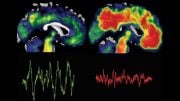
A study published in PLOS Biology suggests that reducing methylation of a messenger RNA can help in the migration of macrophages to the brain and alleviate Alzheimer’s disease symptoms in a mouse model. This study highlights a potential pathway for immune cells to enter the brain and could provide a new target for Alzheimer’s treatment.
Complex path promotes immune cell migration and clearance of toxic protein.
Reducing the methylation of a key messenger RNA can promote migration of macrophages into the brain and ameliorate symptoms of Alzheimer’s disease in a mouse model, according to a new study. The results illuminate one pathway for the entrance of peripheral immune cells into the brain, and may provide a new target for treatment of Alzheimer’s disease. The study was published on March 7th in the open access journal PLOS Biology by Rui Zhang of Air Force Medical University in Xian, Shaanxi, China.
A presumed trigger for the development of Alzheimer’s disease is the accumulation of proteinaceous, extracellular amyloid-beta plaques in the brain. High levels of amyloid-beta in mice leads to neurodegeneration and cognitive symptoms reminiscent of human Alzheimer’s disease, and reduction of amyloid-beta is a major goal in development of new treatments.
One potential pathway for getting rid of amyloid-beta is the migration of blood-derived myeloid cells into the brain, and their maturation into macrophages, which, along with resident microglia, can consume amyloid-beta. That migration is a complex phenomenon controlled by multiple interacting players, but a potentially important one is the methylation of messenger RNA within the myeloid cells.
The most common type of mRNA methylation, called m6A, is carried out by the enzyme METTL3, so the authors first asked whether deficiency of METTL3 in myeloid cells had any effect on cognition in the Alzheimer’s disease mouse model. They found that it did—treated mice performed better on various cognitive tests, an effect that could be inhibited when they blocked the migration of myeloid cells into the brain.
How did decreased mRNA methylation promote myeloid cell migration? The authors elucidated a complex mechanism. Through analysis of mRNA expression patterns and other techniques, they showed that depletion of METTL3 reduced the activity of a key m6A reader protein, which recognizes m6A-modified mRNAs and promotes their translation into protein. That led to a decline in another protein, and that inhibited the production of yet another protein, called ATAT1. Loss of ATAT1 reduced the attachment of acetyl groups to microtubules, and that reduction in turn promoted migration of the myeloid cells into the brain, followed by maturation into macrophages, increased clearance of amyloid-beta, and improved cognition in mice.
“Our results suggest that m6A modifications are potential targets for the treatment of Alzheimer’s disease,” the authors concluded, while noting that much about this pathway in Alzheimer’s disease remains to be explored. Because mRNA methylation has a fundamental effect on a wide variety of downstream targets, effective drug development within this pathway may require moving further downstream to avoid unwanted effects.
Reference: “Loss of the m6A methyltransferase METTL3 in monocyte-derived macrophages ameliorates Alzheimer’s disease pathology in mice” by Huilong Yin, Zhuan Ju, Minhua Zheng, Xiang Zhang, Wenjie Zuo, Yidi Wang, Xiaochen Ding, Xiaofang Zhang, Yingran Peng, Jiadi Li, Angang Yang and Rui Zhang, 7 March 2023, PLOS Biology.
DOI: 10.1371/journal.pbio.3002017
Funding: This study was supported by grants from the National Natural Science Foundation of China (31801128 to Y.H.L., 81630069, 31771439 to Y.A., 82173046 to Z.R., 82173162 to Z.X.), the Program for Ph.D. Starting Research Funding from Xinxiang Medical University grant 505249 to Y.H.L., and the National Key Research and Development Program grant 2016YFC1303200 to Z.R.. The funders had no role in the study design, data collection and analysis, decision to publish, or preparation of the manuscript.








Thanks for sharing this with me.
I’ve read that vegans in general have a 70% lower risk of Alzheimers. https://blameitonlove.wordpress.com/2023/03/25/prevent-alzheimers-disease-with-a-vegan-diet/